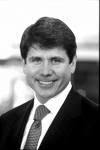By DeWayne Wickham
If you’re looking for an explanation of Barack Obama’s decision to invite conservative evangelical preacher Rick Warren to give the invocation at his Inauguration that goes beyond the desire for a kumbaya moment, I’ve got one.
Obama wants to make Warren his Booker T. Washington.
At the beginning of the 20th century, Washington was one of this nation’s most influential black leaders. His willingness to try to find common ground with whites who viewed – and treated – blacks as an inferior race made Washington someone presidents reached out to.
Theodore Roosevelt, especially, turned to Washington for advice on “the Negro problem.” Taking counsel from “the great accommodationist,” as Washington was called, was an act of steam control by the Republican president at a time when the racial divide was undeniably this nation’s most explosive problem.
“In all things that are purely social we can be as separate as the fingers, yet one as the hand in all things essential to mutual progress,” Washington said in an 1895 speech that established him as a black leader who was willing to temper the demands of blacks for racial equality.
Last week, Warren – who, like most evangelical leaders, disagrees sharply with Obama on social issues like abortion and gay rights – sounded a similar note when he sought to assuage the concerns of those who question why he was asked to give the invocation.
“You don’t have to see eye to eye to walk hand in hand,” he said in a speech to a group of Muslims in California.
With the election of the nation’s first black president America’s continuing racial problems will – for a time, at least – be pushed onto the back burner. A greater threat to the Obama administration will be the cultural warfare that flared up during the election that hoisted Obama into the White House. Voters in three states, Arizona, Florida and California passed constitutional amendments that banned gay marriage. And in Arkansas, voters passed a ballot measure that makes it illegal for gay couples to adopt children or serve as foster parents.
Warren was actively campaigned for passage of Proposition 8, California’s ban on gay marriages. “We support (it), and if you believe what the Bible says about marriage, you need to support Prop 8,” he said in an October email that was sent to members of his Saddleback Church in southern California.
Three months earlier, Obama announced his opposition to the California amendment, saying that he supports civil unions for gays and lesbians – though not marriage. He called the California measure “divisive and discriminatory.”
Theodore Roosevelt believed blacks were intellectually inferior to whites and did little to protect their civil rights during his time in the White House. Even so, Washington became one of his advisers on matters of race – and a conduit for the few patronage appointments that he doled out to blacks.
In accepting Obama’s invitation to give the invocation at next month’s inaugural, Warren gives some pressure relief to Obama, who was backed by just 24 percent of white evangelical voters. Three-fourths of these Christian conservatives voted for John McCain, his Republican opponent in the presidential election.
Republicans won’t be able to make a serious challenge to Obama’s reelection in 2012 without the strong backing of the party’s Christian conservative base. Obama’s outreach to Warren – and Warren’s acceptance of that embrace – threatens to take some of the steam out of and GOP efforts to make Obama the chief target of their cultural battles.
Just as Roosevelt used Washington to keep blacks from deserting the Republican Party, Barack Obama’s effort to befriend Rick Warren could prevent evangelicals from massing in opposition to his presidency.






